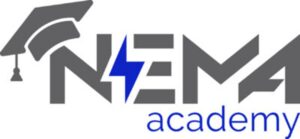NEMA Commends House on Passage of Urgent Electrical Supply Chain Legislation
“NEMA commends the House for passing the Electric Supply Chain Act (R. 3638) championed by Rep. Bob Latta (R-OH). This legislation represents a critical step toward securing America’s energy infrastructure and strengthening our nation’s global competitiveness. “As artificial intelligence, advanced manufacturing, and data centers drive once-in-a-generation electricity demand growth, this bill ensures electrical manufacturers have the supply chain visibility needed to support American energy reliability and affordability. Enabling grid componentmanufacturers and supply chain vendors to provide greater transparency into current and future production capacity, investment needs, and potential constraints gives the energy sector the ability to plan, grow, and strengthen supply chain resilience. STATEMENT: NEMA Commends House on Passage of Urgent Electrical Supply Chain Legislation – NEMA



 In keeping with its alliance with NEMA and the NEMA Academy, the Lighting Controls Association is now the Lighting Controls Academy, a NEMA coalition. The LCA remains the leader in lighting controls education. Under the “Learn” tab, you can click the “Video Courses” button for a roster of free video courses that will be dramatically expanded over the next year. Under the “NEMA Academy” tab, you can access our Education Express courses that are registered for education credit. The new platform includes an enhanced website, comprehensive learning experience, and access to a broad and growing curriculum covering lighting controls in addition to other topics and categories such as lighting.
In keeping with its alliance with NEMA and the NEMA Academy, the Lighting Controls Association is now the Lighting Controls Academy, a NEMA coalition. The LCA remains the leader in lighting controls education. Under the “Learn” tab, you can click the “Video Courses” button for a roster of free video courses that will be dramatically expanded over the next year. Under the “NEMA Academy” tab, you can access our Education Express courses that are registered for education credit. The new platform includes an enhanced website, comprehensive learning experience, and access to a broad and growing curriculum covering lighting controls in addition to other topics and categories such as lighting.  For 25 years, the Lighting Controls Association, a council of the National Electrical Manufacturers Association (NEMA), has educated the building industry about lighting control technology and application, notably through its Education Express courses. The organization is proud to announce that starting May 1, 2025, the Education Express curriculum will be incorporated into a new learning management system,
For 25 years, the Lighting Controls Association, a council of the National Electrical Manufacturers Association (NEMA), has educated the building industry about lighting control technology and application, notably through its Education Express courses. The organization is proud to announce that starting May 1, 2025, the Education Express curriculum will be incorporated into a new learning management system,